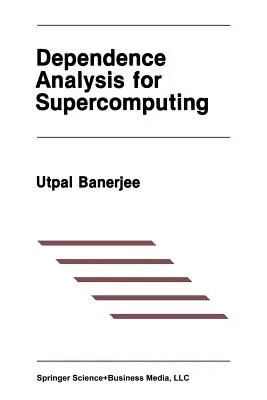Utpal Banerjee
(Author)Dependence Analysis for Supercomputing (Softcover Reprint of the Original 1st 1988)Paperback - Softcover Reprint of the Original 1st 1988, 12 June 2013

Qty
1
Turbo
Ships in 2 - 3 days
In Stock
Free Delivery
Cash on Delivery
15 Days
Free Returns
Secure Checkout
Part of Series
The Springer International Engineering and Computer Science
Part of Series
Springer International Series in Engineering and Computer Sc
Print Length
155 pages
Language
English
Publisher
Springer
Date Published
12 Jun 2013
ISBN-10
1468468960
ISBN-13
9781468468960
Description
Product Details
Author:
Book Edition:
Softcover Reprint of the Original 1st 1988
Book Format:
Paperback
Country of Origin:
NL
Date Published:
12 June 2013
Dimensions:
23.39 x
15.6 x
0.91 cm
ISBN-10:
1468468960
ISBN-13:
9781468468960
Language:
English
Location:
New York, NY
Pages:
155
Publisher:
Series:
Weight:
244.94 gm

